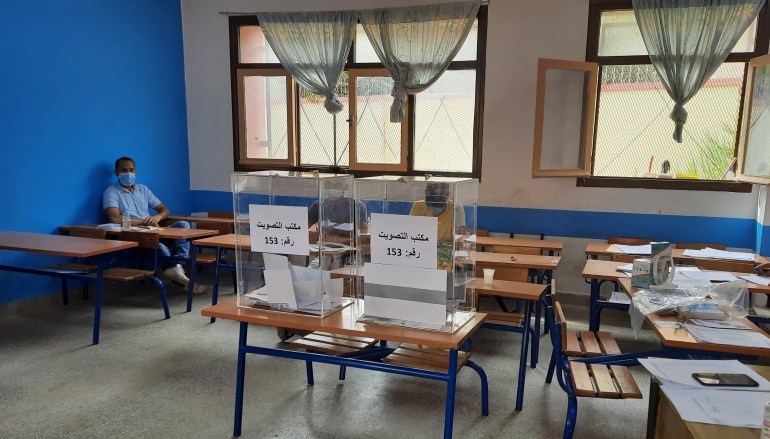Rabat - For the
first time, the 18-year-old Moroccan Ayoub Ousli participated in the elections;
In the early hours, today, Wednesday, he came to the voting center at the Khaled Ibn Al-Walid School in Témara, on the outskirts of the capital, Rabat, to cast his vote in the parliamentary, municipal and regional elections that are being organized in one day.
University student Osley tells Al Jazeera Net that he decided to experiment and participate in the electoral process as soon as he reached the voting age, motivated by his desire to express his choices and make his voice heard.
Polling stations opened in Morocco on Wednesday morning, starting from eight in the evening and continuing until seven in the evening.
The participation rate at the national level reached 12% as of 12 noon, according to the Moroccan Ministry of the Interior.
About 18 million Moroccan citizens were invited to participate in these elections, including 3 million new voters, according to the data of the High Commission for Planning (a government body). This category includes young people between the ages of 18 and 22 years.
Moroccan Malika Mahmoudi after leaving the voting office in a suburb of the capital, Rabat (Al Jazeera Net)
hope for change
After leaving the voting office at the Maati Azmi School in the El Herafie neighborhood of Témara, Moroccan Malika El Mahmoudi hopes that her voice will change the situation.
This fiftieth woman tells Al Jazeera Net that she is waiting for conditions in the country to improve, especially in the education and health sectors, for health services in clinics and hospitals to become worthy of the dignity of the citizen, and for the attention to vulnerable groups to multiply.
She adds that her neighborhood needs attention to its infrastructure and cleanliness, hoping that her voice will contribute to change, and says that "our country is beautiful and only needs people who serve it with a conscience."
As for Jawad Osalih (42 years old), he hopes that the country will move forward on the path of progress, and he told Al Jazeera Net immediately after leaving the voting office that he hopes that the government and local programs of the winning parties will give priority to the youth.
He added, "We want the youth to be given a chance because they are all ambitious. We do not want the country to be led by personalities with old mentalities."
precautionary measures
The turnout at polling stations continues in various voting centers in Morocco since the first hours of their opening, in light of observance of precautionary measures and measures.
The Ministry of the Interior had previously stressed the need to respect these measures in voting centers, such as measuring the temperature of voters, respecting distance, and wearing a muzzle.
The parties participating in the elections were informed that one representative of them had to be accredited at the polling stations, who would carry out the tasks for the three ballots.
Morocco has accredited 44 national non-governmental organizations represented by more than 4,600 election observers, and 19 international organizations represented by more than 100 observers.
International bodies represent various African, European, Asian and Arab countries.
One of the voting offices in Temara, on the outskirts of Rabat (Al-Jazeera)
control and facilities
The national and international observers began their duties from the first hours of the opening of the voting offices, to monitor the progress and conditions of the electoral process.
According to the National Coordinator of the Collective Fabric for Monitoring Elections, Kamal Lahbib, the monitors affiliated to the association - numbering 2,600 - were distributed among the various regions to monitor the extent to which the laws regulating the elections are respected.
He told Habib to Al Jazeera Net that the fabric collects information from the various regions and parties that will enable them to reach results and recommendations regarding the conduct of the electoral process.
In general, he assures Habib that the process is normal, and the citizens went to the voting offices with their opening at eight o'clock before they went to work, and it is expected that turnout will rise in the evening period after the end of their work.
Prime Minister Saad Eddine El Othmani had called in a circular to grant facilities to staff, employees and aides on the occasion of the upcoming scheduled elections.
The circular also allowed absenteeism throughout the polling day for employees and agents delegated by the electoral list agents, or candidates to represent them at the polling stations, with the aim of monitoring the voting and counting process, counting votes, and announcing the results.

